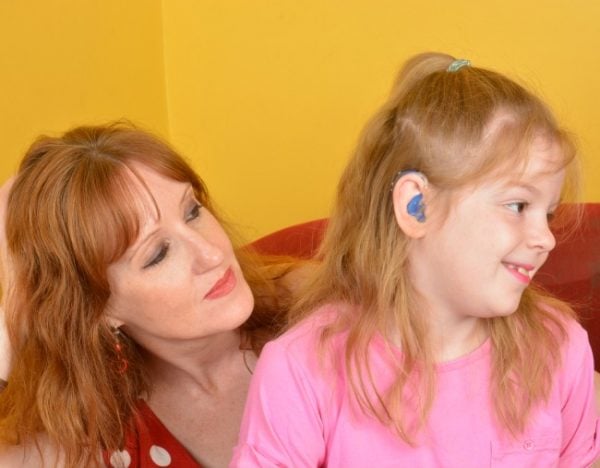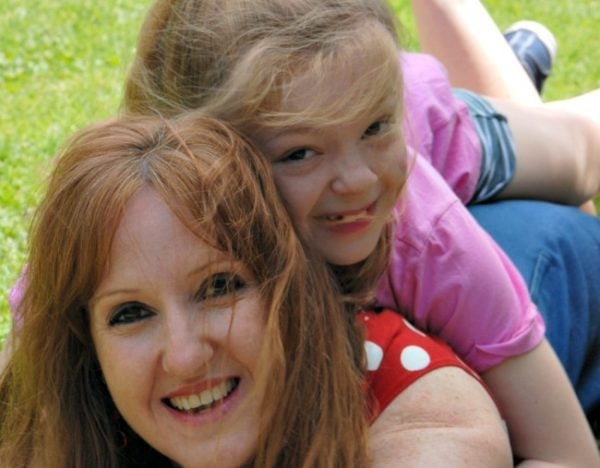I’m not sure precisely when I started worrying about the social impact of Amelia’s deafness. Maybe it was the day I read too much online about how isolating, confusing and downright exhausting social experiences can be for deaf kids, always up against it in the hearing world.
Daunting words in bold-face leapt out at me from the computer screen. Sharp-edged ones like, depression. Anxiety. Paranoia. And anger. That one always seemed to be in italics for maximum impact.
It’s not a doom-sayer’s checklist – ‘nasty things coming your way when you’re raising a deaf child’ – but it is a set of emotional risk factors that can’t be taken lightly.
My aim as a parent is to hopefully reduce their power to hurt my daughter on her path between two contrasting worlds – deaf and hearing.
Melinda Hildebrandt speaks candidly to Mia Freedman about parenting her daughter who has autism and is deaf. (Post continues below.)
Amelia is not quite six years old and we have only known about her deafness for a tick under four years. It’s not a long time in the grand scheme of things. But already I see just how easy it is for her as a deaf child to be left out or excluded by virtue of her difference to other people.
Let’s take birthday parties as a classic example. Oh birthday parties, how I hate thee with a passion. It’s unavoidable, but kid’s parties are the worst kind of place for a deaf child to feel a part of the natural order of things.
Because they’re too loud, too chaotic, too MAD for Amelia to make sense of what is going on around her. Sure, she wears hearing aids but they are next to useless in the face of such an intense racket. Those little devices can sift the wheat sounds from the cacophonous chaff and so she is mostly lost.































































































